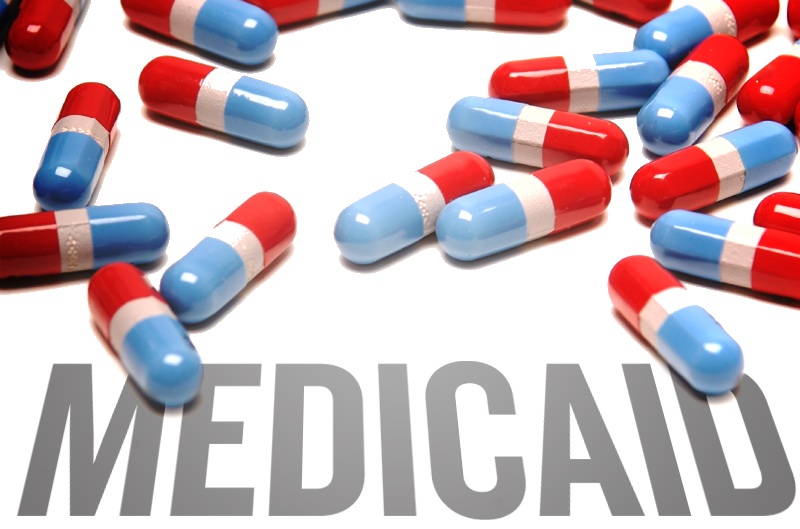To view a copy of MEPC’s written testimony click here. A summary of the testimony is found below.
Medicaid expansion is a critical economic and public health opportunity that should be implemented in Mississippi. Six reasons underscore the importance of moving forward with expansion.
Expansion Supports Working Families
Medicaid expansion will provide coverage for approximately 300,000 non-elderly adults that earn too much to qualify for the current Medicaid program and too little to qualify for subsidies to buy health insurance through the exchange. The majority of people who would be covered by expansion are working. Among the ten occupations with the highest number of uninsured workers with incomes below Medicaid expansion eligibility include cashiers, construction workers and truck drivers. Ironically, if the state does not expand, low-wage workers would be the most likely group in the state to remain uninsured.
Medicaid Expansion Creates Jobs
According to the Mississippi Institutions for Higher Learning, the influx of $1 billion federal dollars into the state to finance expansion each year will create 9,000 jobs. The jobs could not come at a better time. Mississippi has lost 66,000 jobs since the start of the Great Recession in 2007 and has the same number of jobs today as in 1996.
Medicaid Expansion is Important for Keeping Mississippi Competitive
Not surprisingly, a lack of access to health insurance and negative health outcomes are related. Individuals without health insurance delay going to the doctor when care is needed; go without necessary care and do not receive prescription medications needed to ensure better health. The uninsured are also more likely to skip periodic screenings for various cancers and heart disease. As a result, when individuals without insurance finally make it to see a physician, the disease has advanced to a stage that is extremely costly to treat with a lower likelihood of success. In the end, a loss of productivity occurs when people miss work due to untreated health problems. Arkansas has stated clearly that it will move forward with expansion and Tennessee is considering expansion. Given that two states adjacent to Mississippi may potentially implement expansion – and thus position the workforce to be more productive over time – Mississippi could find itself permanently behind in the competition for business and industry.
Reductions in Disproportionate Share Hospital (DSH) Payments threaten Hospitalseded to ensure better health. The uninsured are also more likely to skip periodic screenings for various cancers and heart disease. As a result, when individuals without insurance finally make it to see a physician, the disease has advanced to a stage that is extremely costly to treat with a lower likelihood of success. In the end, a loss of productivity occurs when people miss work due to untreated health problems. Arkansas has stated clearly that it will move forward with expansion and Tennessee is considering expansion. Given that two states adjacent to Mississippi may potentially implement expansion – and thus position the workforce to be more productive over time – Mississippi could find itself permanently behind in the competition for business and industry.
From 2014 to 2020, DSH payments will be reduced nationwide by $18.1 billion. The pool of funds from which hospitals currently receive DSH payments will be significantly reduced. For rural hospitals and hospitals that care for large numbers of the uninsured, the reduction in DSH payments could ultimately result in service cuts and job losses.
Given the Return on State Expansion Costs, Expansion Should be a Priority
During the first three years, the federal government will cover 100% of the medical services costs of expansion. With approximately $1 billion in federal funds coming into the state annually, new jobs and new revenue will be generated. The estimated new revenue generated will be enough to cover all of the administrative costs of expansion during the first three years.
In 2020, the net cost to the state for Medicaid expansion, once revenues are subtracted from the gross costs, comes to $65 million. So, for $65 million – not including other savings that the state would incur in areas such as mental health – the state would insure 300,000 people, create 9,000 jobs and keep Mississippi’s hospitals stable. In contrast, the state could find itself in a position of trying to find a similar amount of money simply to make up for the loss in DSH payments to hospitals – particularly those supported by state and local government.
States that have Previously Expanded Medicaid Eligibility have seen Improved Health Outcomes and Health Care Utilization
In Oregon, a rigorous study found that individuals with public insurance (Medicaid) were more likely than individuals without insurance to seek preventative care – such as receiving a mammogram and cholesterol screening. Such a finding is relevant in Mississippi where the incidence of Breast Cancer is relatively low (Mississippi ranks 38th in the country), but the rate of death from Breast Cancer in Mississippi is the 4th highest in the country. Another study published in the New England Journal of Medicine found that Medicaid expansion was associated with a reduction in mortality rates and a decrease in delays in accessing care due to costs for childless adults.
Given the magnitude of the opportunity, Mississippi should move forward with expansion in 2014 and use the three years of full federal financing of medical services to make improvements and efficiencies in the program in preparation for the phase in of state costs.







